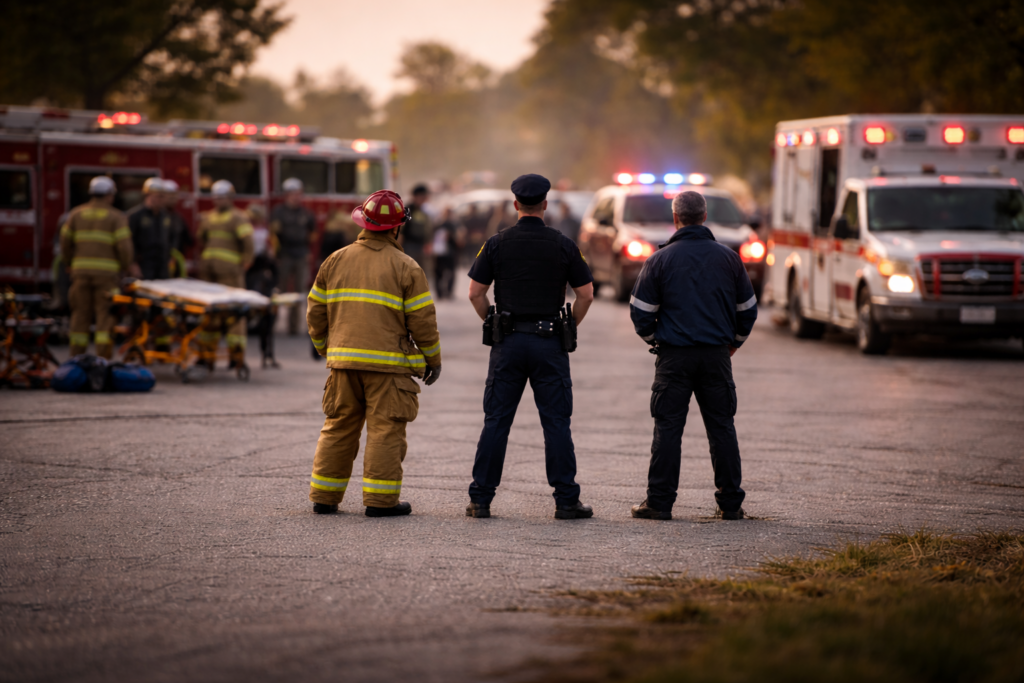In the firehouse, bonds run deep. We share meals, dorms, drills, and the hardest calls. These relationships often feel like family and rightly so. But when it comes to promotions, those same bonds can blur the line between loyalty and leadership. Which begs the question, “Do we promote our friends, or the most qualified?”
Let’s be honest — this dilemma isn’t new. From the times of the earliest bucket brigades and hand-pumper carriages, people have been promoted for who they know as much as for what they know. But in today’s fire service, where professionalism and accountability are under a microscope, we can’t afford to let favoritism erode trust or endanger lives.
The Fireground Doesn’t Care About Friendship
When I was a young firefighter, I witnessed several cases of “connections over competence” in the promotional process. One in particular still stands out: a fellow firefighter with very little time on the job who jumped quickly from rookie to captain. He was bright, sure, but his intelligence was more about political machinations than skilled operation on the fireground. His friendship with a well-connected officer (not his résumé) turned out to be his ladder. And when the big incidents came, that lack of experience burned everyone involved.
A rookie mistake is still a rookie mistake, and this “rank jumper” put both his teammates and the public at risk. Because here’s the thing: When the tones drop and all hell breaks loose, it’s competence (not camaraderie) that saves lives.
White Paper: Performance Evaluations DOWNLOAD NOW!
The fireground doesn’t care who your best friend is. It demands leaders who are trained, tested, and ready to make split-second decisions under pressure.
Promotions must be earned, not presented on a silver platter. When favoritism creeps in, morale suffers. Firefighters begin to ask, “Why bother studying if it doesn’t matter?” Trust in leadership goes down and rebuilding that trust is no small task. The ripple effect can last for years, and once firefighters stop believing in the system, leading becomes less about direction and more about damage control.
Fairness Fuels Performance
When advancement is based on merit, departments thrive. That means a clear, transparent process: written exams, assessment panels, structured interviews, and documented performance evaluations. These send a clear message that hard work and preparation pay off.
When firefighters know the rules are fair, they lean into the mission with renewed focus and pride. And when they believe their leaders have truly earned their bugles, they’re more willing to follow them into the fire — both literally and figuratively.
Mentorship is vital, but it’s not a shortcut to promotion. You can guide your friends, support their growth, and celebrate their wins. But when it’s time to hand out promotions, the question should never be “Who do I like most?” Rather, it should be “Who is ready to lead this team when things go sideways?”
This isn’t about removing emotion from leadership — it’s about channeling it where it belongs. Fairness is emotional fuel. It keeps departments cohesive, motivated, and focused on the mission.
“Competence must remain the foundation of advancement if we expect to build credible leaders.”
Balancing Loyalty and Leadership
The fire service is built on loyalty, camaraderie, and trust. These values strengthen our teams, but they can also complicate leadership decisions. Promoting someone based on friendship rather than performance risks damaging morale, credibility, and the integrity of the organization.
The antidote is transparency. Clear communication about promotional standards and expectations protects both the department and its people. Even when tough calls must be made, people can respect decisions grounded in fairness. What they can’t respect is favoritism disguised as “leadership intuition.”
Even when a friend earns a promotion, both parties must recognize that the relationship changes. The newly promoted officer now carries the weight of discipline, accountability, and the unenviable task of saying “no” to the same people they used to hang out with at the kitchen table. It’s not personal — it’s professional.
As leaders, our loyalty has to shift from individuals to the department as a whole. Someone with an immature perspective on leadership may see this as betrayal. But really, it’s responsibility.
What We Reward Shapes Who We Become
Ultimately, the culture of a department is defined by what it rewards. If promotions are based on connections, the message is clear: Politics matters more than performance. If they’re based on competence, then the message becomes: Excellence matters — and everyone has a fair shot.
Departments that choose the latter build stronger leaders and safer communities. Those that don’t risk falling into the same trap as many other institutions where mediocrity hides behind relationships. Firefighting isn’t a country club; it’s a calling. And the fireground has a funny way of exposing anyone who didn’t earn their stripes.
According to the International Association of Fire Chiefs (IAFC), consistent, merit-based promotion processes are a key driver of retention and morale across departments. Studies show that when employees trust their organization’s fairness, engagement increases and turnover drops dramatically.
IAFC resources on recruitment and retention emphasize transparent, competency-based processes and workforce solutions, while national research consistently links perceived fairness to lower turnover and higher engagement. In other words, make promotions fair and consistent and people are more likely to lean in — and stay.
The Hidden Cost of Favoritism
Favoritism doesn’t just frustrate people — it can put them in danger. In a high-risk profession like firefighting, competence literally saves lives. A poorly prepared officer on the fireground can make the wrong tactical call, putting both crews and civilians at risk. And it’s not just about fires — leadership gaps affect everything from budget management to public trust.
Research shows transformational leadership in the fire service is strongly connected to improvements in how firefighters perform on the ground. Leaders focused on safety help improve compliance with gear use and reduce risky behaviors. Conversely, when leadership is passive or disconnected, stress and anxiety rise, and safety behavior declines.
Promoting with Purpose
So how do we get it right? Start by building a culture of mentorship and professional development that’s open to all — not just those lucky enough to be in the inner circle. Encourage firefighters to prepare for promotion through ongoing training, leadership academies, and honest feedback.
As the Center for Public Safety Excellence recommends, agencies should invest in leadership succession planning with the same deliberate thought they give to their apparatus and facilities. In other words, don’t wait until the current chief retires to start figuring out who’s next. Create a pipeline that’s fair, visible, and rooted in competence.
And for the record, being fair doesn’t mean being cold. You can care about your people deeply and still expect excellence from them. The best leaders do both.
Connection Counts — But Competence Commands Respect
In the fire service, leadership isn’t about being liked —it’s about being ready. When the alarm sounds, your popularity won’t save you. Your preparation will.
Connections matter — they build culture, trust, and teamwork. But competence is what keeps people alive. The challenge for every chief and officer is to balance the heart of the firehouse with the head of command. Lead with compassion, promote with integrity, and remember: your decisions echo far beyond the station walls.
At the end of the day, the badge may be pinned by a friend, but it better be earned by a professional.
- Blog Articles



